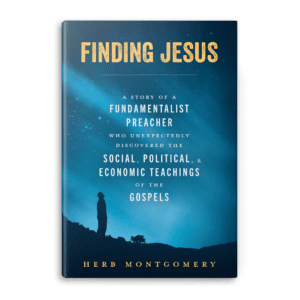
The second theme in this parable is generosity: “Are you envious because I am generous?”
What if our guiding value was not seeing how much we could amass but generously sharing, taking responsibility for each other, and making sure everyone had enough not simply to survive but to thrive?
Welcome Readers! Please subscribe to Social Jesus Here.
(Read this series from the beginning at Part 1 and Part 2.)
In our present system, an elite few has more than they could ever possibly need while others daily fight against an early death named poverty. Our society’s problem is not those on welfare but a system that creates such an expanse of winners and losers that welfare is needed. As Gustavo Gutiérrez rightly states:
“The poor person does not exist as an inescapable fact of destiny. His or her existence is not politically neutral, and it is not ethically innocent. The poor are a by-product of the system in which we live and for which we are responsible. They are marginalized by our social and cultural world. They are the oppressed, exploited proletariat, robbed of the fruit of their labor and despoiled of their humanity. Hence the poverty of the poor is not a call to generous relief action, but a demand that we go and build a different social order.” (The Power of the Poor in History, Gustavo Gutiérrez)
It is this different social order based on a spirit of generosity that would make generous relief efforts obsolete, no longer even necessary. It would be rooted in a posture of generosity rather than one of hoarding.
The third and last theme is of concern for workers’ needs. Although some of the workers were not hired by anyone until the last hour of the day (‘Why have you been standing here all day long doing nothing?’ ‘Because no one has hired us,’ they answered.), they all still had the same daily needs. They may have had families that depended on what they brought home that day.
The landowner in this story is not concerned with how many hours they worked, but with using his land to provide for the needs of as many as could be provided for. The foundational concern, the priority of highest value, is ensuring these workers have their needs met. Certainly the landowner stood to gain from their employment, yet he was not focused on how much he could squeeze out of them so that he could become even wealthier. Each worker received a days wages.
I already hear friends objecting that if we had a system like this there would be people who would take advantage of it. My answer is, “And?”
Our current system has people who take advantage of it: those at the center and the top of our society. In our present system, the wealthy take advantage of loopholes to increase their passive wealth. Rarely does this social and economic class hear the New Testament words, “Those who don’t work don’t eat” applied to them. These words are usually weaponized against poor people who are accused of laziness or expected to explain and justify their poverty. We should instead understand the root cause of their economic situation: a system stacked against them.
To be clear: There are lazy people in all classes, and lazy people can thrive if they know how to work whichever level of the system they find themselves in. The theme in our reading is not how hard or how long a person works. The theme is how to take care of the needs of the laborers. The priority is not how far can we squeeze workers to enrich their employer with their exploited labor. The priority is a combination of equality, generosity, and concern for the needs of the workers.
What might our present economic system look like if these three themes governed us? There is so much talk among some Christians today about shaping our society according to Christian values. Yet whenever the values in the Jesus story are mentioned—equality, generosity, concern for workers—these same Christians label them socialist or Marxist. What if equality, generosity and wealth sharing, and concern for the needs of workers is actually the way of Jesus?
 Herb’s new book, Finding Jesus: A story of a fundamentalist preacher who unexpectedly discovered the social, political, and economic teachings of the Gospels, is now available at Renewed Heart Ministries.
Herb’s new book, Finding Jesus: A story of a fundamentalist preacher who unexpectedly discovered the social, political, and economic teachings of the Gospels, is now available at Renewed Heart Ministries.














